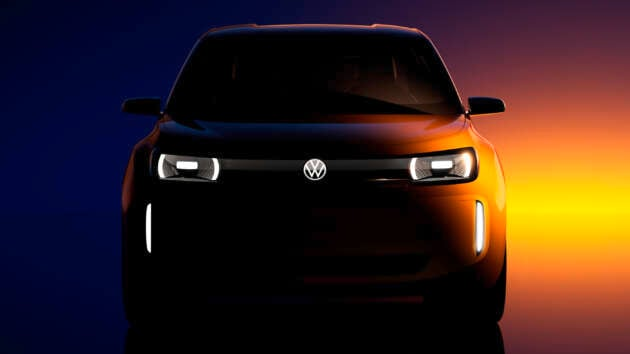In recent years, Brazil has emerged as a surprising leader in the electric vehicle (EV) market among emerging economies. According to a report from Bloomberg Green, Brazil experienced a 32% increase in EV sales in 2022 alone, outpacing many other developing nations. This growth can be attributed to a combination of government incentives, innovative local companies, and increasing consumer awareness of sustainable living. In this article, we’ll explore how Brazil is spearheading the electric vehicle revolution in emerging markets and what this means for the future of global mobility.
The Brazilian EV Market: A Rising Force
Government Incentives and Policies
One of the main drivers behind Brazil’s electric vehicle boom is the government’s proactive approach to promoting sustainable transportation. The Brazilian government has implemented several policies aimed at encouraging EV adoption. These include:
- Tax Incentives: Reduced import duties and tax exemptions for electric vehicles have made them more financially accessible to the average consumer.
- Subsidies for Manufacturers: Local manufacturers benefit from subsidies that reduce production costs, encouraging them to develop and market affordable EV models.
- Investment in Infrastructure: Significant investment in charging infrastructure, including fast-charging stations along major highways, has made EVs a more convenient option for long-distance travel.
Innovative Local Players
Brazil is not just relying on international brands like Tesla and Nissan to drive the EV market. Local companies are making significant strides in EV technology and production. For instance, BYD Brazil has been pivotal in developing electric buses, which are now operating in cities like São Paulo and Rio de Janeiro. Additionally, companies like Movida and Unidas have introduced electric car rental services, making EVs more accessible to the masses.
Consumer Awareness and Eco-consciousness
The rise of electric vehicles in Brazil is also fueled by a growing eco-conscious consumer base. More Brazilians are recognizing the impact of conventional vehicles on air pollution and climate change. As a result, there is an increasing demand for cleaner and more sustainable transportation options. A recent survey by InsideEVs revealed that 45% of Brazilian consumers are considering an electric vehicle for their next car purchase, highlighting a significant shift in consumer preferences.
Charging Infrastructure: Building the Backbone of EV Adoption
Expansion of Charging Networks
One of the critical challenges for any emerging market in the EV sector is the development of a reliable charging infrastructure. Brazil has tackled this issue head-on:
- Public-Private Partnerships: Collaborative efforts between the government and private companies have led to the rapid expansion of charging networks across the country.
- Strategic Locations: Charging stations are strategically placed in urban centers, shopping malls, and along highways, ensuring convenience for EV users.
- Innovative Solutions: Companies like Eletrobras are exploring solar-powered charging stations, which could further enhance sustainability.
How to Charge Your EV in Brazil
Charging an electric vehicle in Brazil is becoming increasingly simple, thanks to the growing infrastructure:
- Locate a Charging Station: Use apps like PlugShare to find nearby charging stations.
- Choose Your Connector: Most stations offer multiple connector types, including Type 2 and CCS.
- Payment Options: Many stations accept various payment methods, including credit cards and mobile payments.
Comparing Electric Vehicle Options in Brazil
When considering an electric vehicle in Brazil, potential buyers have several options. Here’s a quick comparison of some popular models available in the market:
- Nissan Leaf: Known for its reliability and affordability, the Nissan Leaf is a popular choice among Brazilian consumers.
- BMW i3: Offers a more premium experience with advanced features and a longer range.
- Chevrolet Bolt EV: A budget-friendly option with impressive range and performance.
- BYD e6: A locally produced option that supports the domestic economy and offers competitive pricing.
The Road Ahead: Future Trends in Brazil’s EV Market
As Brazil continues to lead the electric vehicle boom in emerging markets, several trends are likely to shape the future of this sector:
- Increased Local Production: With growing demand, more international manufacturers may set up production facilities in Brazil, boosting the local economy.
- Technological Innovations: Advances in battery technology, such as solid-state batteries, could make EVs even more appealing by offering longer ranges and shorter charging times.
- Policy Evolution: Continued government support and evolving policies will be crucial to sustain growth in the EV market.
Conclusion: Brazil’s Role in the Global EV Revolution
In conclusion, Brazil’s strategic combination of government incentives, local innovation, and consumer awareness has positioned it as a leader in the electric vehicle market among emerging nations. As the country continues to expand its EV infrastructure and embrace new technologies, it sets a precedent for other developing countries to follow. If you’re considering an electric vehicle, Brazil offers a vibrant and rapidly growing market with diverse options to suit various needs. What are your thoughts on Brazil’s role in the global EV revolution? Could it inspire other emerging markets to accelerate their EV adoption? Share your thoughts in the comments below!
As we look to the future, Brazil’s success in the EV market could be a catalyst for broader changes in global mobility, highlighting the potential for sustainable transportation solutions in emerging economies worldwide.

